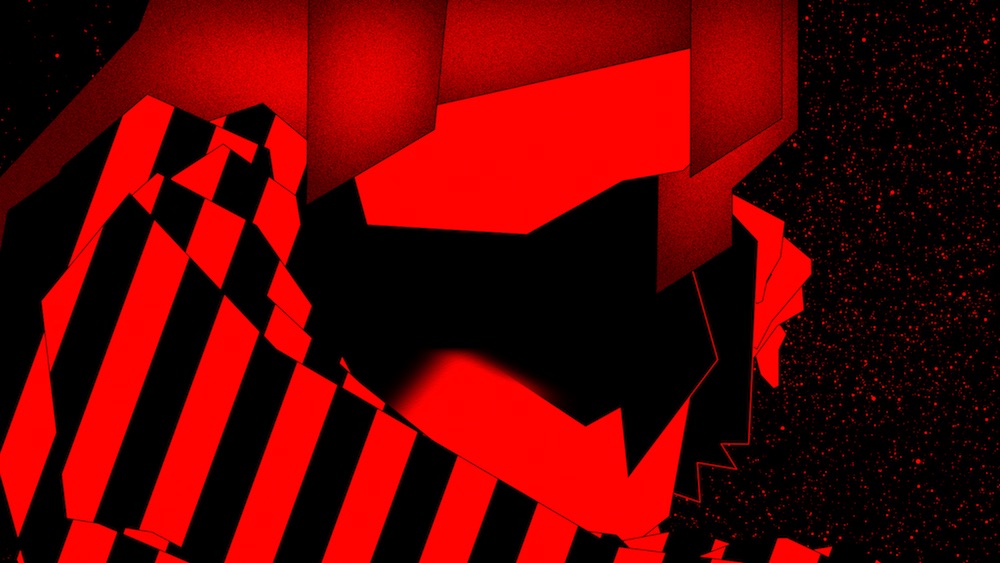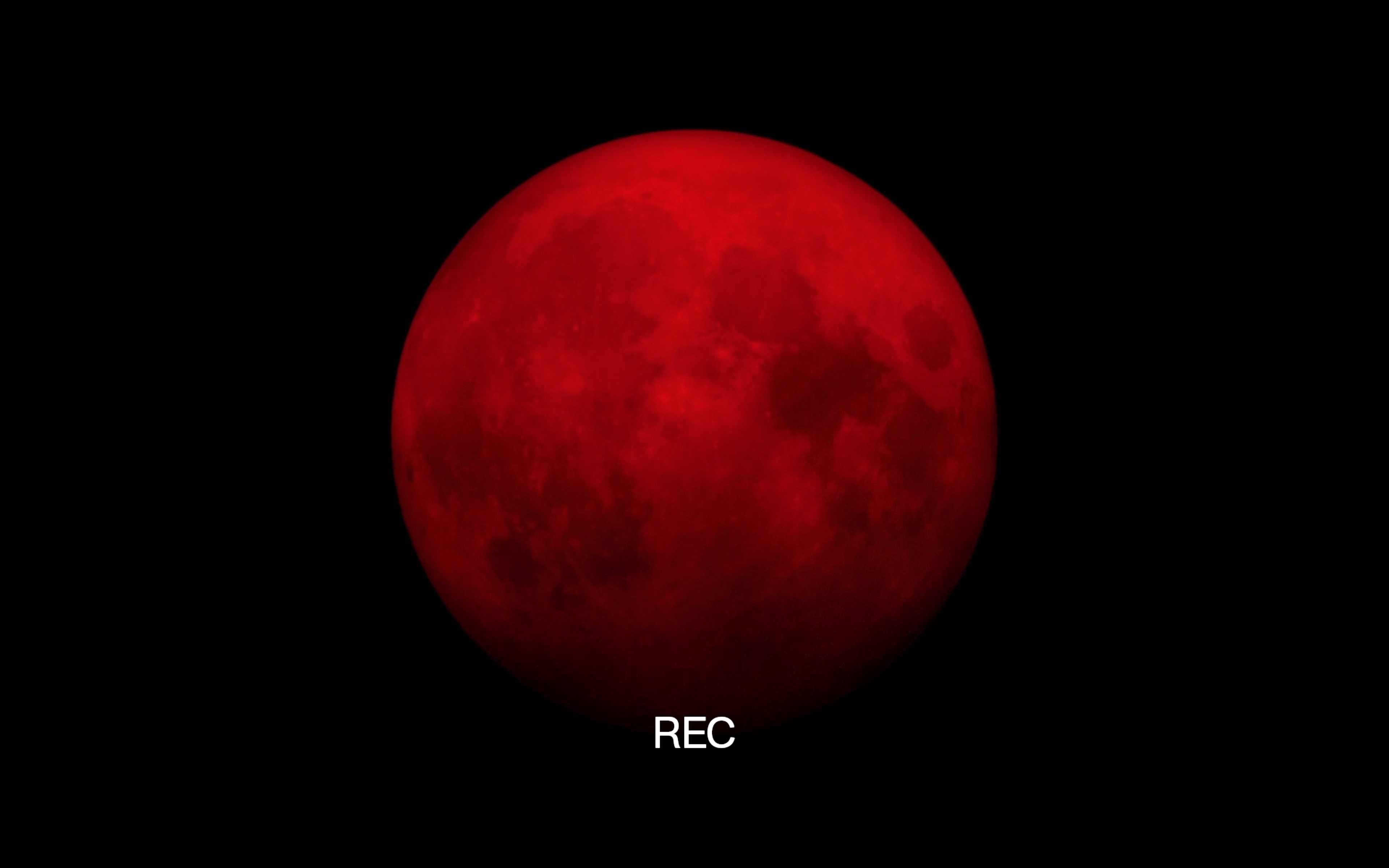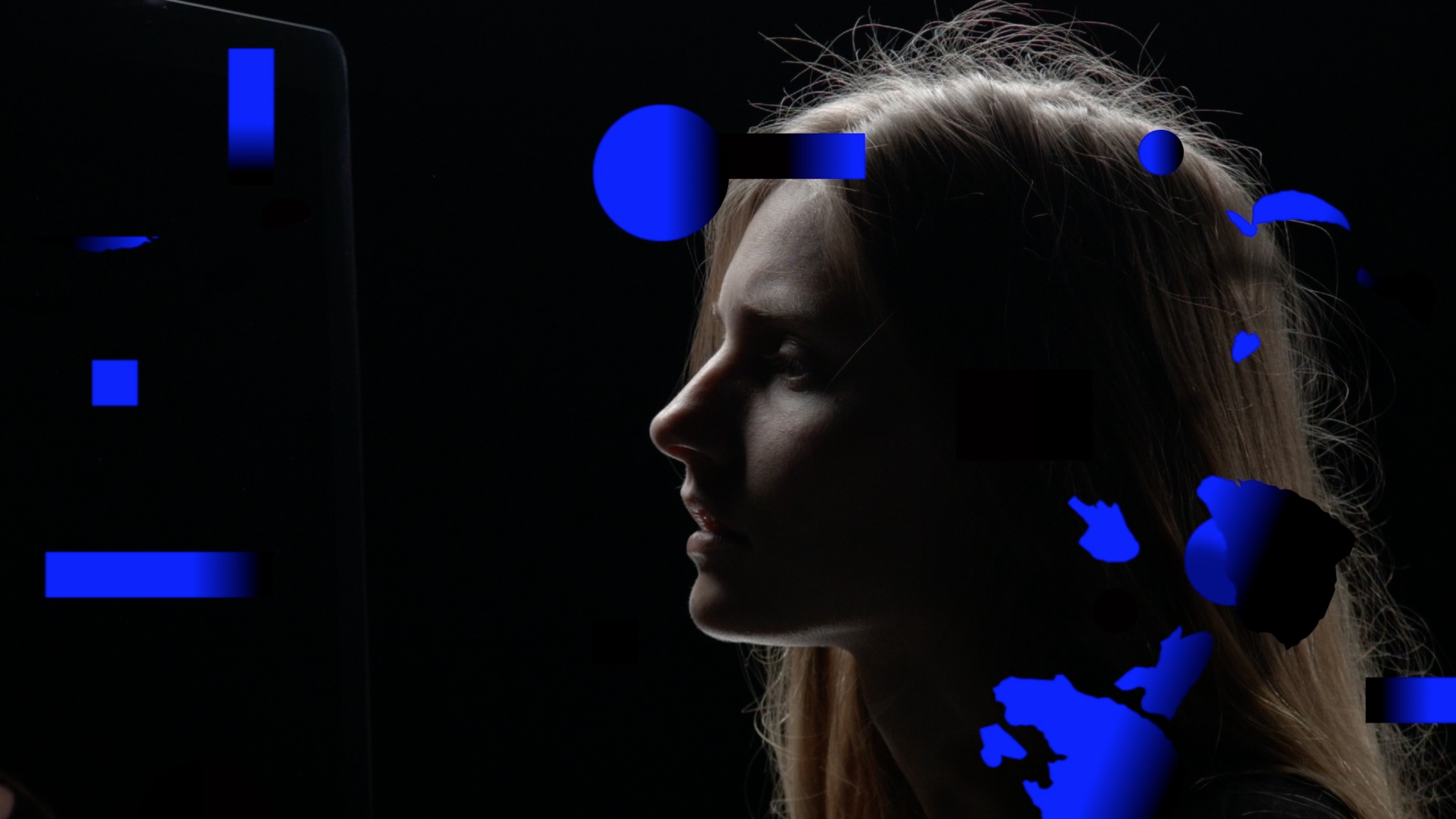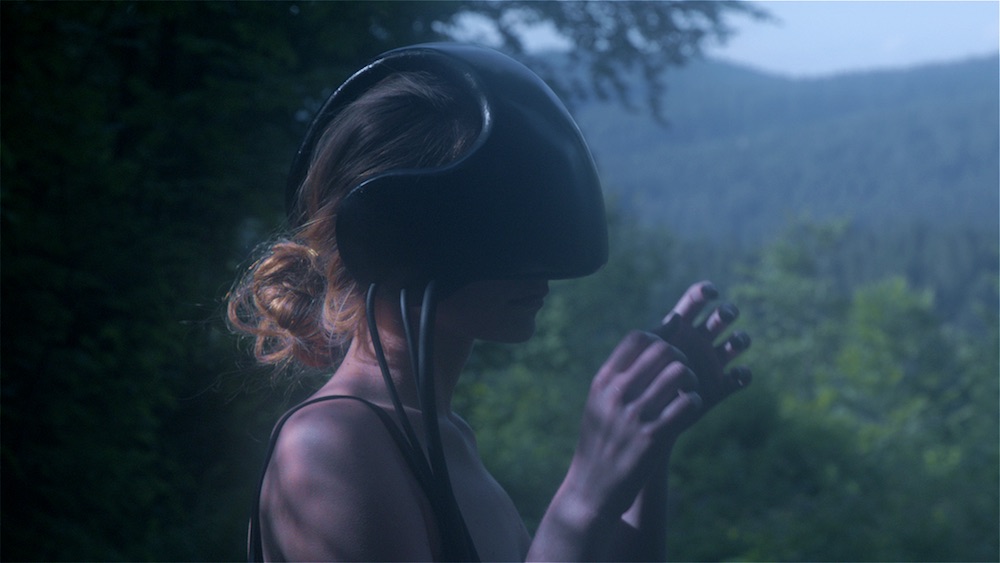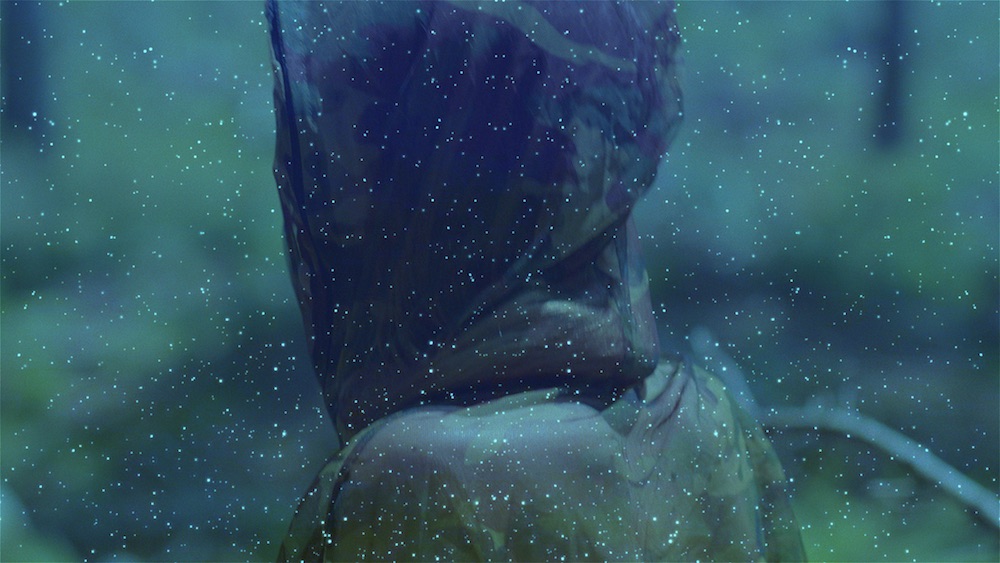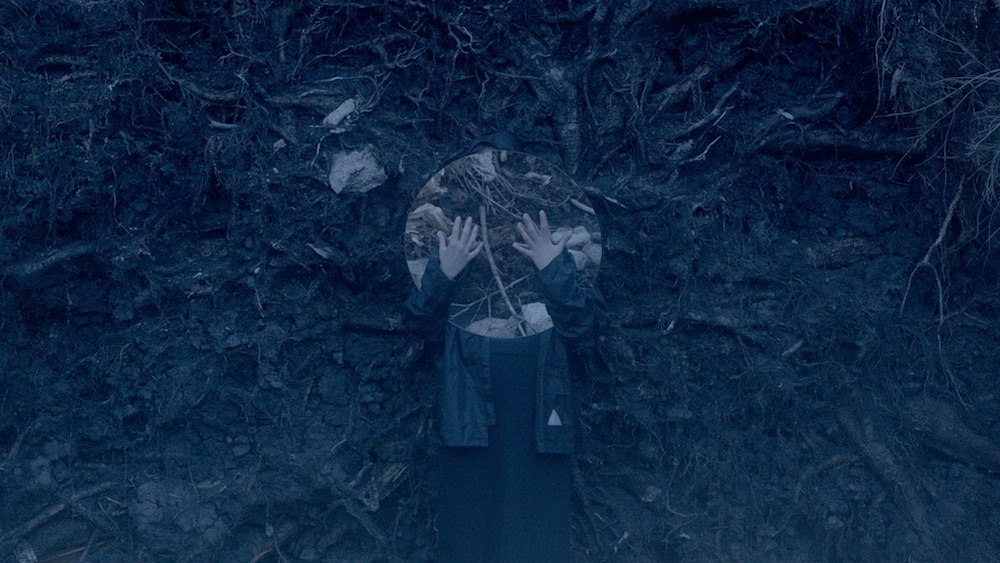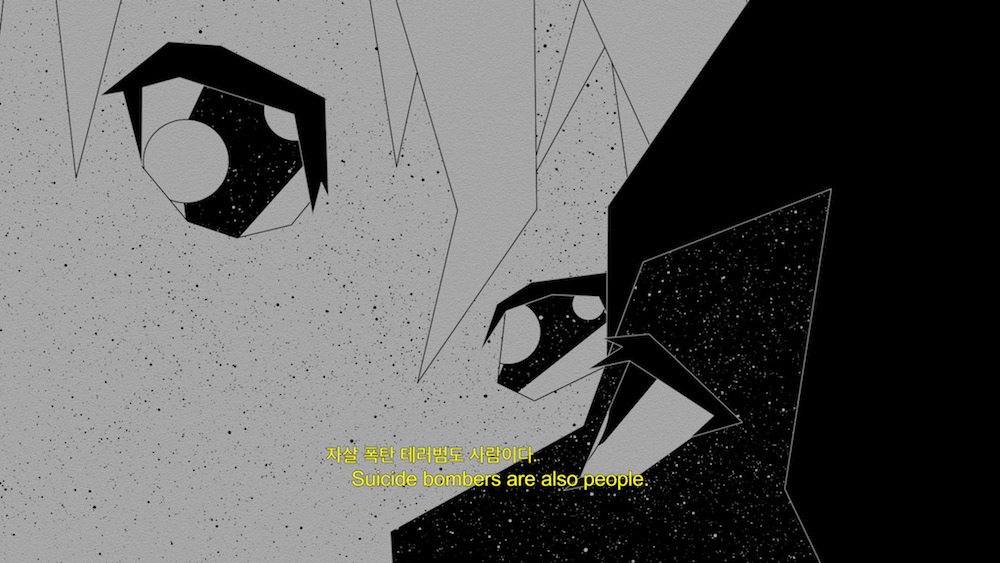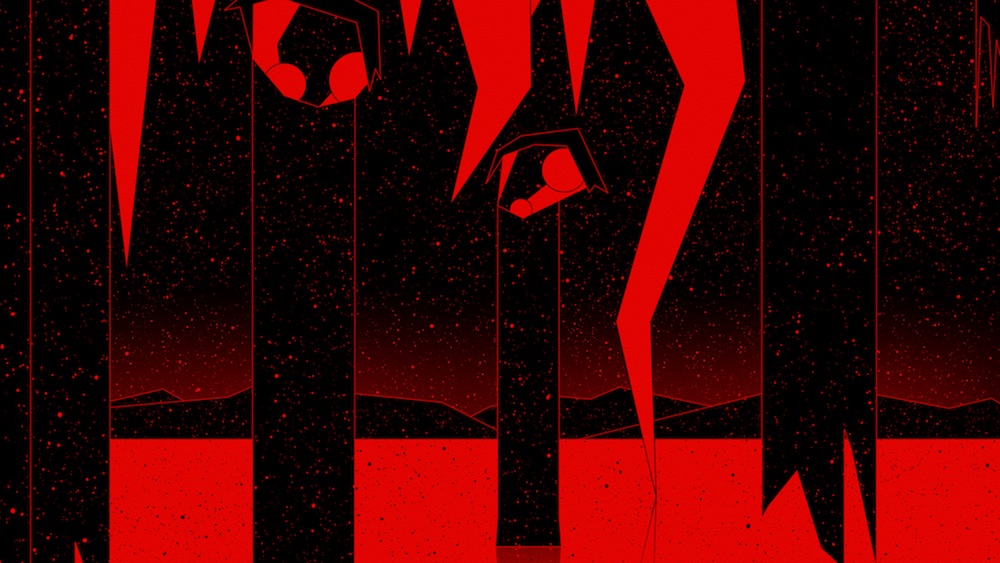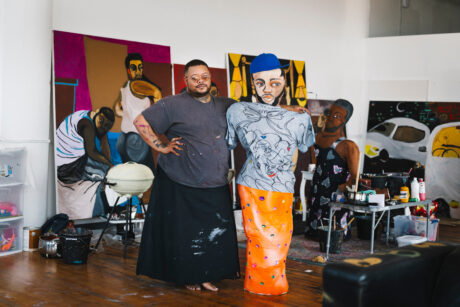Encountering Metahaven for the first time is like entering a Japanese cinema during the screening of a Russian film with no subtitles, halfway through the first act. But confusion is part of the appeal: the duo comprising Daniel van der Velden and Vinca Kruk gravitates like an alien object somewhere at the intersection of graphic design, filmmaking and activism.
Metahaven have conjured up layered compositions of obscure pop cultural references and sinister geometries for electro musician Holly Herndon, but also for WikiLeaks; in their first movie The Sprawl: Propaganda About Propaganda, they intertwine the language of YouTube memes and Tolstoy with real-time geopolitical paranoia and thoughts by speculative design theorist Benjamin H. Bratton. Just by looking at their use of typography — they regularly contaminate the simplicity of Dutch Default Design with a clutter of futuristic, almost martial fonts — the emergence of the Amsterdam duo as one of the most compelling voices in visual culture seems justified.
I meet Daniel van der Velden at the Crypto Design Awards, in Amsterdam. Aimed at bridging the technical world of cryptography with the collective imaginary by devising new visual metaphors for the deep web, the conference seemed the perfect occasion to discuss Metahaven’s own poetic and strategic visions. And, of course, the craziness of contemporary politics, post-truth, trolling, Russia and Donald Trump.
Your first book was titled Uncorporate Identity and a few years ago you also designed a brand for WikiLeaks. How do you think the concepts of branding and identity have changed after the election of Trump?
With Trump you already have a brand, almost a parody of one — the gold, the typeface, a really flat penchant for opulence. A really unsophisticated brand that, however, has come to align itself with a form of totalitarianism — or authoritarianism – that is becoming dangerously close to the new standard and has already become the new geopolitical normal. Stylistically there is a clear continuum. There is a lot to dig up in terms of what it all means visually and aesthetically, but there is no time for that.
You seem to focus a lot on Russia and Ukraine. Why do you think Eastern Europe is so interesting in terms of politics and aesthetics?
While making The Sprawl it occurred to us that all the Russian broadcasters we got in touch with gave us the material practically for free. Those we had problems with were the Western broadcasters. In Russia there is a basic understanding that, once it’s out, information is good — even if it’s part of a critical film. Any dissemination is positive. We are also interested in the region because the notion of “post-truth” feels deeply linked to certain Russian and Eastern philosophical ideas. It’s not something as flat as post-truth, but it has to do with factual truth and spiritual truth. Another reason was reading the book What is Art? by Leo Tolstoy, which is a manifesto about art, and also learning about the concept of political technology. It’s very useful even when you’re looking outside of Russia — it’s basically about permanent shape-shifting, being unpredictable. Absurdity and myth, things that rational and enlightenment politics have kind of disavowed, are being utilized in political technology. It’s possible to talk about it as a kind of art. I wouldn’t say someone like Donald Trump has studied this, but he fits in it.
What is the role of art in propaganda?
Obviously, art has a license to speak and act with all the imagination you can have. The problem is that it does not always have a full license and artists are not independent, they are made vulnerable by their dependence on the ecosystems around them. The case of the Internet Party of Ukraine, who ran a candidate named Darth Vader at the elections and campaigned by juxtaposing images of Star Wars characters to communist monuments – almost like an artist collective would — is a perfect example of this sort of post-politics regime, where nobody believes in real progress or political programmes anymore. How do you hack the system? You vote for Darth Vader. It doesn’t make any sense, but it kind of does.
Is there something to learn there, in terms of communication strategies?
We need to understand this type of shape-shifting much better in Western politics, in order to counter and work with certain phenomena. The fact-based narrative, disproving the myths and lies, doesn’t work. An example is the birther theory about Obama: the trick is that in order to refute the theory you have to repeat it first — every attempt at debunking helps distribute the object of debunking. These things like political technology, Trump, the Internet Party of Ukraine — literally you can map it on a YouTube timeline, they’re ways to own your timeline.
So, speaking of metaphors for the web, instead of a bubble you see a timeline?
The filter bubble idea has been around for a while now. In a sense, by saying “the Facebook algorithm did it” we have again depersonalised our very role and agency in the information process. Our responsibility is already elsewhere. The timeline is something you do have some level of control over, plus you can create things that will occupy other people’s timelines. So there is an incredible battle for your time and ironically companies like Google and Facebook are reaping the profits. There is a very strange infrastructural power that is not related to what anyone says.
Which brings us to trolling. Why do you think the practice has become so prevalent in online discourse?
Trolls are discourse fixers, you say something and I would say “What about this, how about that”, try to expose some paradox in the way you reason. There was an alt-right Twitter bot that people talked with for hours without noticing it was fully automated and there was no human behind it.
Is there anything like a trollish imagination for the left? Why do you think trolls seem to always be right wing?
That’s true. There is a fundamental limitation for left-wing people to troll, because the troll is a pre-modern figure, it’s basically Lord of the Rings. It’s about having fictional powers that become real powers. We need to develop our own weapons. Probably the discovery will be more of an accident than an active search, but it will be about shape-shifting, imagining yourself with another type of power than you actually have. But eventually, politics is made with bodies, not computers.
metahaven.net/
